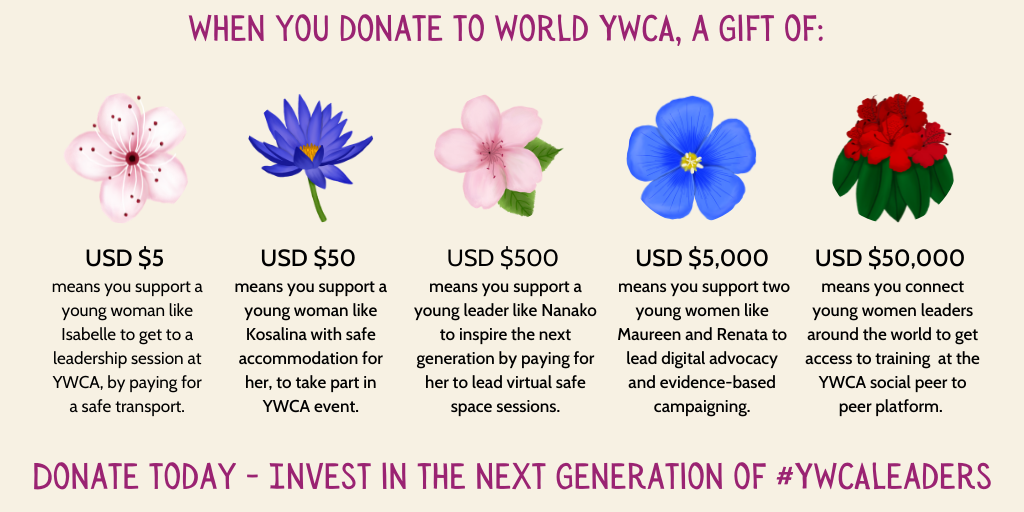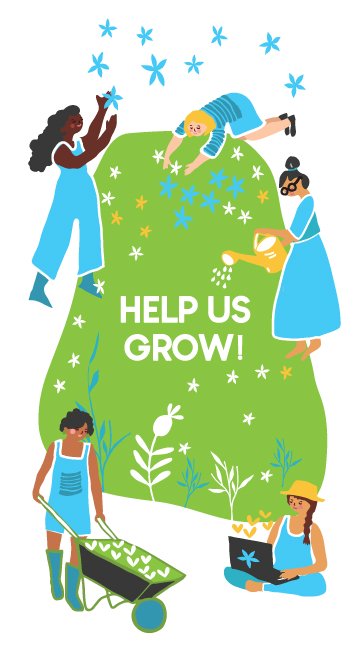Get inspired by stories of change, take action by donating to World YWCA
Kosalina was born to Sri Lankan parents in Lebanon where Eastern and Western cultures co-existed. She was living under a more western influence though. When she was 9, her family relocated to Sri Lanka where communities were more conservative. She was attending an international school, living in a traditional community and growing up towards the end of a Civil War.
When Kosalina moved to Colombo for higher education, she found a relatable open minded atmosphere in this city, which was more cosmopolitan. After graduation, she found a place to stay at the YWCA Hostel for Working Women, and soon saw herself registering to volunteer for women’s empowerment and advocacy initiatives.
Kosalina involved herself with the community to understand the needs of girls and young women, and quickly grasped their sexual and reproductive health and rights (SRHR) issues and its impact on their mental health. She prioritised their concerns and mobilised the resources required to conduct trainings and sessions for them. She was motivated to build the capacities of young girls in order to foster a cadre of future leaders.
In Sri Lanka, communities are rooted in their own traditions and customs. In some regions, a girl has to be isolated for a month when she gets her first period. In another, girls and women have to carry iron on them while they’re menstruating. In most other communities, girls are not allowed to enter the temple during this period.
“World YWCA enables so many young leaders like me to host Safe Spaces where women come for the advice, support, information and opportunities we need,” says Kosalina proudly.
Kosalina created safe spaces for youth groups to discuss menstruation, sexually-transmitted diseases, contraceptives, and the right to their body. She would tread carefully around cultural sensitivities to call out harmful practices. Furthermore,
since a lot of young adults were gathering sex education from the internet, even pornography, she started sharing valuable resources to tackle misleading and sexist information.
When the pandemic hit, Kosalina made quick adjustments to her strategy and set up social media accounts to keep communication channels open between her mentees. She designed infographics to amplify awareness about Covid-19. To counter the increasing cases of child and women abuse, she participated in World YWCA campaign ‘Week Without Violence’, and partnered with youth to spread the word.
With the support from Kosalina’s offline and online awareness sessions and trainings on SRHR and mental health, a lot of young women have been able to collectivise power to bring up their challenges and rights. Meanwhile, a common social media platform called ‘Voices of Asian Activists’ enables them to tap into the power and influence of their peers in the region.
Kosalina recognises that many women, including her, have had to break their walls to be able to openly talk about rights with their families and communities. And with more safe spaces, trainings and leadership skills, young Sri Lankan women will soon be empowered to make their own decisions and lead fulfilling lives.
As the World YWCA, we will continue to share more evidence from the ground about the power of investing in feminist movements and leaders who embrace the challenges and make real impact on-the-ground.
We know you believe in the power of young women, as we do. Will you invest to make this a reality?
DONATE today – no matter how big or small.
Invest in the next generation of #YWCAleaders #YoungWomenLead







